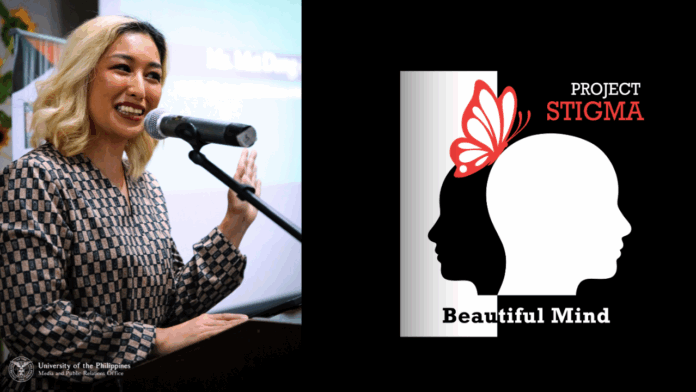“Let us keep pushing not just for awareness, but for action.”
This was the call to action by Ms. Met Dong-As, Executive Director of the ADHD Society of the Philippines, following her speech during the launch of Project Stigma last July 8, 2025, at the University Hotel in UP Diliman, Quezon City.
The event was led by The Platform News, in partnership with the UP System, the Office of the Vice President for Academic Affairs, and the Office of Student Development Services (OVPAA-OSDS).
The Attention Deficit Hyperactivity Disorder (ADHD) Society of the Philippines (ADHDSP) is an awareness and support organization catering to the needs of persons with ADHD. As part of the launch of Project Stigma, they shared insights on the status of neurodivergence in the Philippines and what could be done.
Dong-As said that according to the National Survey for Mental Health and Wellbeing, ADHD affects 1.29 percent of Filipino children. Global estimates put it at 5 to 7 percent in children and 2 percent in adults, with many left untreated or even undiagnosed.
Without timely diagnosis, over 30 percent of children with ADHD are at risk of dropping out of school, while adolescents are two to three times more likely to engage in substance abuse. An estimated 25 percent of incarcerated individuals are believed to have ADHD, many of whom were undiagnosed and never supported in their early years.
This lack of diagnosis and treatment stems from stigma, Dong-As added. For parents, it often involves not wanting to be labelled as “bad parents,” or not wanting their children to be labelled as “different.” Social stereotypes and lack of awareness often peg students with ADHD, reducing them to labels like “tamad kasi yung bata,” “bulakbol,” or “ayaw mag-aral.” Even in professional settings, there are worries about stigmatization. Adults may hide it for fear of being called crazy or unstable, or fear of being labelled in the workplace as “si ano… may something.”
She explained that this lack of support, awareness, and mechanisms can be a societal drain. People with ADHD are highly creative, quick problem solvers, natural risk-takers, deeply empathetic, and full of energy and drive. Many of the world’s thought leaders, well-known entrepreneurs, and CEOs have ADHD. Their success came not despite their condition, but because they and those around them recognized their talents, strengths, and needs.
She concluded her talk with a call to action that Project Stigma echoes: “We owe it to our children to build a system that sees them, understands them, and helps them thrive.”



